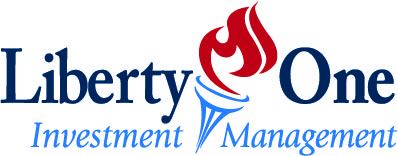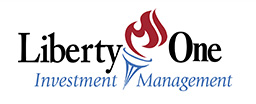Thank you for your continued trust and confidence. We would like to inform you that we have made some changes in Liberty One’s CAPSTONE portfolio. We sold Envestnet (ENV), First Solar (FSLR), Astra Zeneca (AZN), and Fastly Co (FSLY). These positions were replaced with BancFirst Corporation (BANF), SouthState Corp (SSB), Humana Inc (HUM), and Cadence Design Systems (CDNS).
Envestnet (ENV) and BancFirst Corp (BANF)
Envestnet entered into a definitive agreement to be acquired by Bain Capital for $63.15 per share and recently received unanimous approval from Envestnet’s Board of Directors to consummate the deal. The deal is expected to close in the fourth quarter of 2024. In maintaining our exposure within the financial sector, we replaced ENV with BANF. BANF is a regional community bank operating primarily in Oklahoma and Texas. The bank follows a decentralized approach in managing its operations, allowing the bank to be more responsive to changing local customer needs and creating stronger relationships as a result. The bank maintains a robust balance sheet with a focus on conservative lending practices. BANF reported an efficiency ratio of 53% (indicating that it spends approximately $0.53 for every dollar in revenue it generates) in Q3 2024 which is stronger than its peer average of 60%. Net interest margins and return on tangible equity are also above its peer averages. The bank has increased its dividend payments for 31 consecutive years, highlighting the strength of its operations. They increased their dividend payments to shareholders amidst periods of significant uncertainty and volatility (through the dot-com bubble, The Great Financial Crisis, and the most recent COVID-19 pandemic). Prospects of potential financial deregulation and management’s strong track record to grow book value through organic and inorganic methods gives us confidence in management’s ability to continue creating shareholder value over the long term.
First Solar (FSLR) and SouthState Corp (SSB)
First Solar is a US based solar panel manufacturer whose business could face several challenges under a Trump administration. Primarily, President-Elect Trump has expressed intentions to repeal the Inflation Reduction Act (IRA), a legislation passed under the Biden administration that provides substantial tax incentives for renewable energy projects. FSLR has benefitted from the tax incentives under the IRA. In December 2023, the company entered agreements to sell up to $700 million in tax credits, indicating a significant reliance on these incentives for financial performance. The repeal of the act could reduce financial support for solar energy initiatives which could potentially reduce demand for FSLR’s products. The increased public interest in using baseload power (natural gas, nuclear, hydrocarbons) instead of intermittent power (wind and solar) due to stronger reliability could also add additional pressure on the demand for FSLR’s products. SouthState Corp is a regional bank operating primarily in the Southeastern states of the country (Florida, Texas, South Carolina, Georgia, North Carolina, Alabama, and Virginia). The bank’s attractive geographical footprint that continues to benefit from strong migration flows should continue to benefit the bank’s deposit and earning-asset growth over time. SSB posts an enviable low cost of funding (averaging 1.80% TTM) while management have executed well in their lending operations to generate an above average net interest margin profile. Its efficiency ratio of 57% and strong return on tangible common equity of 15.6% (above the industry average of 10-12%) highlights the bank’s strong profitability quality. SSB also maintains a robust risk management framework with the bank’s total risk-based capital ratio and tier 1 leverage ratio, both exceeding regulatory requirements. SSB has grown revenue significantly in the last 5 years (approximately 26% CAGR) by deploying a strong M&A playbook that could continue to benefit from a steepening yield curve with potential financial deregulation prospects.
AstraZeneca (AZN) and Humana (HUM)
AstraZeneca (AZN) is currently being investigated in China over allegations for illegally importing several oncology drugs which has led to the detainment and resignation of their President in its China unit. Additionally, the company is also being implicated in a separate insurance fraud case dating back to 2021. Although it is our belief that the probes are unlikely to have a significant impact on the company’s financials on a go-forward basis, the uncertainty surrounding the timeline and results of the litigation creates an overhang on the stock which adversely impairs our perception of the risk-adjusted return potential for AZN. We draw parallels to GlaxoSmithKline’s litigation issues with Zantac which plagued its stock price since August 2022 and the stock is still down -10% from that point. Humana (HUM) is an integrated health service and medical insurance company primarily focused on serving the elderly population with its top-tier position in Medicare Advantage plans. US demographic trends with an aging population and increasing eligible households who qualify for Medicare Advantage plans positions HUM to be at the forefront of one of the fastest growing areas in US medical insurance. The company’s integrated approach focused on value-based care aims to improve care quality and lower costs, which feeds the bottom line. Their scale, network effects, and decades of knowledge base (primarily in Medicare Advantage plans) create a competitive advantage and a high barrier of entry for new entrants to competitively enter the market. We take somewhat of a contrarian approach with initiating a position in Humana as the company has faced challenges in 2024 within its Medicare Advantage business that we believe sets a low base for financial results to recover from. High inpatient utilization from its members, higher medical costs, and pricing pressure from the Center of Medicare and Medicaid Services (CMS) have eroded their 2024 margins but the company is investing in quality improvement initiatives and operational enhancements to drive margins back to its long-term potential. We believe challenges faced in 2024 are not structural, but actions taken to fix them and results that come from it are still uncertain. Potential friendlier policies toward private health insurers from the Trump administration could alleviate some of the concerns but HUM still needs to execute well to retain its top-tier position in one of the faster growing segments of the medical insurance industry.
Fastly Co (FSLY) and Cadence Design Systems (CDNS)
Fastly Co (FSLY) is a provider of edge cloud platforms that has encountered several challenges and headwinds that we do not foresee abating anytime soon. Revenue growth continues to decline with customer concentration and pricing pressure posing significant risks. Additionally, the company struggles to achieve its profitability targets. In its most recent quarter, the company reported a GAAP net loss of $38 million. As a result, the company has failed to meet our profitability mandate in CAPSTONE, triggering us to remove the position from the portfolio. Cadence Design Systems (CDNS) is a leader in the Electronic Design Automation (EDA) market which comprises a set of software, hardware, and essential services for designing semiconductor chips. The market is a mission-critical component within the R&D budgets for semiconductor companies to continue innovating and developing next generation chips. The proliferation of the Artificial Intelligence (AI) industry has only increased the market potential of EDA companies. CDNS operates in an oligopoly within the EDA market and has strategically invested in their AI driven design tools to differentiate itself from its competitors. Recently launched Cadence.AI platform has seen significant adoption with revenue tripling year-over-year due to enhanced productivity and efficiency customers are able to generate from their design tools. CDNS’ comprehensive suite of EDA tools are deeply integrated into its customers’ chip design workflows that increases switching costs and entrenches its deep relationships with its customers. The attractive economics of CDNS’ business model is also evident in the numbers, with the company consistently generating operating margins north of 20%, strong 5-year median return on invested capital above 25% (far outpacing our estimates of their cost of capital at 10%), and robust free cash flow generation of over $1 billion. While other companies exposed to the AI supply chain have gained significant market attention this year, CDNS, who is critical to the AI revolution has yet to receive such attention, with the stock up less than 10% this year.
In summary, we see this change as our continued mission to generate active value for you and your clients. Recent trade changes that we have made so far this year are already contributing positively to the portfolio.


